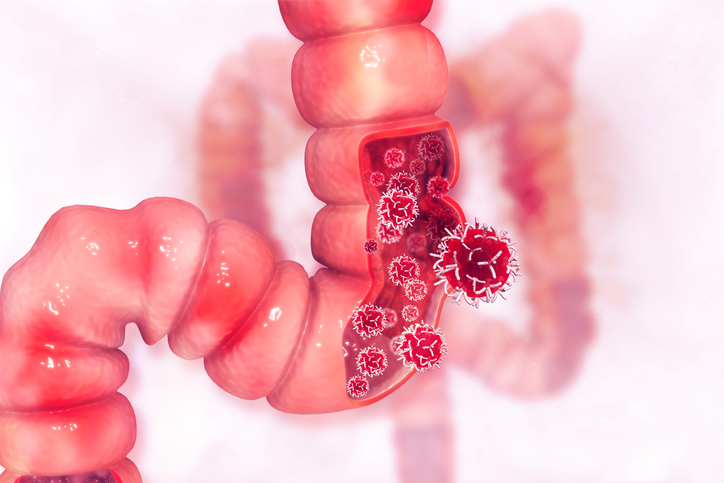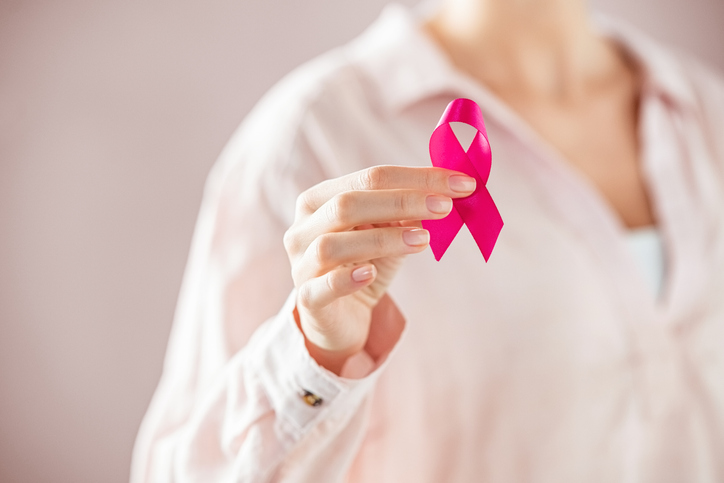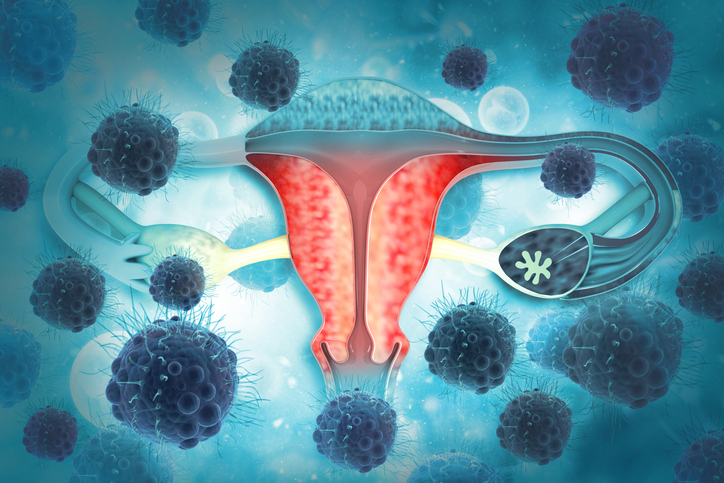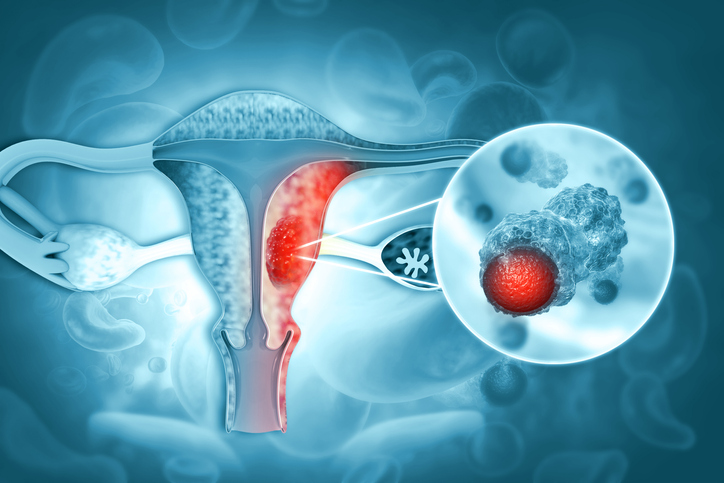A fiber-rich diet can reduce your overall calorie intake, helping you maintain a healthy weight, which is very important in reducing the risk of cancer. And the best sources of fiber are still natural, unprocessed, plant-based foods.
According to the American Institute for Cancer Research, fiber-rich plant-based foods can help reduce cancer risk.
Numerous studies have shown that eating high-fiber foods can help stave off certain types of cancer, but results are not that conclusive yet. Check out these findings for the relationship of fiber to the reduced risk of different types of cancers:
Colon Cancer

Most of the research on the link between fiber and cancer prevention focuses on colon cancer because fiber does most of its work in the colon. To maintain a clean and healthy colon, the trick is to get enough dietary fiber. If your colon is healthy, there is less likelihood that you will develop colon cancer.
A study published in the British Medical Journal found that increase in total fiber intake was linked to a reduction of the risk of colorectal cancer. The team of researchers found 25 scientifically sound studies and analyzed the data from all of them. The study notes that fiber from whole grains and cereals is more strongly linked to reducing the risk of colorectal cancer, with evidence weaker for fiber from legumes, fruits, and vegetables.
Overall, the team found a 10% risk reduction in colorectal cancer for every 10 grams of fiber eaten in a day. The more fiber they ate, the more risk reduction was found.
However, experts are still debating about the exact amount of fiber that can reduce colorectal cancer risk. Also, the cause and effect are not yet proven. One possibility is that fiber can cut the transit time of food in the digestive tract, helping dilute carcinogens in the colon.
Even so, eating more whole grains will do well for your colon and contribute to a healthier body, which will benefit you in the long run.
Breast Cancer

Skimping on fiber has high stakes for your health as a girl, increasing your risk of developing breast cancer. According to the 2015 to 2020 Dietary Guidelines, women are advised to consume 25 grams of fiber a day.
A long-term study involving 44,000 women who are surveyed about their eating habits in high school found that women who consumed more fiber had a 24% lower risk of developing breast cancer before menopause. This research was published in the journal Pediatrics, and it concludes that eating fiber-rich foods in adolescence can significantly reduce the risk of developing breast cancer into adulthood.
However, the limitation of this study is that it relies on data from women in their 30s and 40s, who had to recall what they ate during high school. There might have been a recall bias, and the memories of women might be foggy.
Another comprehensive study published by the American Cancer Society studied the link between fiber and breast cancer risk. An analysis of 20 different trials involving millions of women revealed that a high fiber consumption could lower breast cancer risk by 8%. This study also found that only soluble fiber – the type of fiber found in fruits, vegetables, nuts, cereals, beans, oats, lentils, and peas – had a statistically significant effect on reduced breast cancer incidence.
Given these proofs, having a high-fiber diet may play a role in preventing breast cancer. To reach the 25-gram target, women are advised to add fiber at each meal in the form of fruits, seeds, nuts, beans, whole grains, and vegetables. Women can also add fiber-rich snacks like popcorn and edamame.
Ovarian Cancer

Ovarian cancer is the second most common female reproductive tumor worldwide. Women who would like to reduce their risk of ovarian cancer must consider consuming more high-fiber foods like fruits and vegetables, according to a 2018 study published in Nutrition Journal.
The study shows the link between the amount of fiber eaten by women living in North America, Australia, Sweden, and Italy, and their risk of developing ovarian cancer. The researchers found that the risk of developing the disease was reduced by 22% for people who consumed the highest amounts of dietary fiber per day. They also discovered that for every 10 grams more fiber consumed per day, the risk of ovarian cancer could be reduced up to 12%.
Another study conducted by Chinese scientists found a link between dietary fiber intake and the risk of epithelial ovarian cancer in Chinese women. The research involved 500 ovarian cancer patients and 500 control subjects and studied the participants’ consumption of Chinese food. It found that ovarian cancer patients have lower intake levels of dietary fiber than control subjects.
Endometrial Cancer

Endometrial cancer is the most common form of uterine cancer, which forms when cancerous tumors and cells develop within the lining of the uterus (endometrium). The risk of developing this cancer increases with weight gain. Body fat cells synthesize with estrogen, so excess quantities of this hormone can trigger the formation, growth, and spread of cancerous cells within and beyond the endometrium. High levels of estrogen cause about 80% of endometrial cancer incidence.
Therefore, increasing dietary fiber intake can help in this area. Foods rich in dietary fiber are known to be beneficial in weight loss and preventing weight gain. Fiber also soaks up excess estrogen and carries it out of the body, mixing it with solid wastes from the intestines. According to a study, women who lost at least 5% of their body weight had a 29% decrease in the risk of developing endometrial cancer.
A 2010 research found the correlation between dietary fiber intake and endometrial cancer risk. It reveals that endometrial cancer is less likely to develop in women sticking to a high-fiber diet.
Prostate Cancer

Fiber is not just beneficial for women – it can also help prevent the onset of male-related cancers like prostate cancer. If you already have the disease, one way to fight it is to eat more fiber.
Studies on the relationship between fiber and prostate cancer are inconclusive, and the evidence that eating more dietary fiber can help prevent prostate cancer has been a challenge to find. However, one study suggests that a high fiber diet can help men manage the progression of the disease if they are in the early stages of prostate cancer.
A study involving 2,000 men reported that those who ate a moderate to a high amount of fiber reduced their chances of developing an aggressive form of colon cancer by 30-39 percent. They found that the primary ingredient in a high-fiber diet, inositol hexaphosphate (IP6), aids in preventing prostate tumors from producing new blood vessels that nourish cancer and allow it to spread and grow. High-fiber diets also reduce the rate at which prostate tumors use glucose.
The study also investigated why prostate cancer does not progress in men in Asian societies, while it does in Western societies. They found that the difference is not in genetics but fiber intake, which is good news because men can modify their diet.
Fiber binds to cancer-causing agents and helps eliminate them from the body. Fiber also attaches to testosterone, making the hormone less likely to initiate the growth of prostate tumors. Previous research has also shown that IP6 can protect prostate tissues and prevent the development of prostate tumors.
FAQ- Fight Cancer with Fiber
1. How does fiber reducer cancer?
Cancer is the uncontrolled growth of cells in certain parts of your body. This disease is extremely dangerous and although cures are available, it is quite hard to be completely free of cancer. As scary as that might sound, there are a few things you can do and a few habits that you can form which allow you to lower your chances of developing cancer.
Fiber is one of those food groups that everyone recommends more on in our diet. But exactly how does fiber fight cancer? All of this prevention happens in the gut. When fiber interacts with the bacteria in our bowel, it causes the bacteria to make butyrate. Butyrate enables the cels in our bowel to stay healthy. Hence, tumors are less likely to develop. No tumor growth means no cancer.
2. Which kind of fiber reduces Colon Cancer?
In total, there are three kinds of fiber. These fibers include soluble fiber, insoluble fiber, and prebiotic fiber. All three of these work together to ensure that we are at our healthiest and protected from various different kinds of diseases.
Out of these three, soluble fibers are the ones that are associated with cancer prevention, especially colon cancer prevention. Soluble fiber, as per the name, dissolves in water to form a gel-like substance that delays the emptying of the stomach and helps you feel full for longer. This fiber is also responsible for lowering blood cholesterol and glucose levels. When these levels are maintained in our body, the chance of developing cancer is lowered considerably.
Soluble fiber protects us from colon cancer by being fermented to form short-chain fatty acids that help in colon health.
3. How much fiber is needed to reduce cancer risk?
According to dieticians, adults should be consuming around 21-25 grams of fiber at a minimum. This is just to ensure that our gut has adequate fiber to go about our daily needs. A person having 21-25 grams of fiber in their diet does not mean that they have a high-fiber diet. To have a high fiber diet, one must consume at least 30 grams of dietary fiber. This amount of fiber helps lower the risk of developing cancer and ensures that various organs are performing their tasks efficiently. AICR reports highlighted the importance between a high fiber diet and lowering the risk of cancer through numbers. According to their research, a 10-gram increase in dietary fiber can lower your risk of developing colorectal cancer by 7 percent.
4. What foods should be consumed if one wants to increase their fiber intake?
It is no secret that fiber is a miracle food. The three kinds of fiber we consume have different properties that come together to help prevent various life-threatening diseases. You can be saved from cardiovascular diseases, cancers, high blood pressure, and more if you consume enough fiber. However, not everyone consumes enough fiber. Most people don’t even reach the minimum of 21-25 grams required.
Here are a few options to help up your fiber intake
- Vegetables such as broccoli, avocados, bell peppers, etc
- Fruits such as apples, bananas, berries such as raspberries, and more
- Snacks such as popcorns
- Nuts
- Dried Fruit
- Whole grain products such as whole-grain bread, whole-grain pasta, and more.
Conclusion
Fiber is the food group that people ignore the most. However, it comes as no surprise that foods rich in fiber can help reduce the risk of cancer by quite a bit. Additionally, it is good news that fiber does not just help with one kind of cancer, it is efficient against many different kinds of cancer such as colon cancer, breast cancer, and more.

